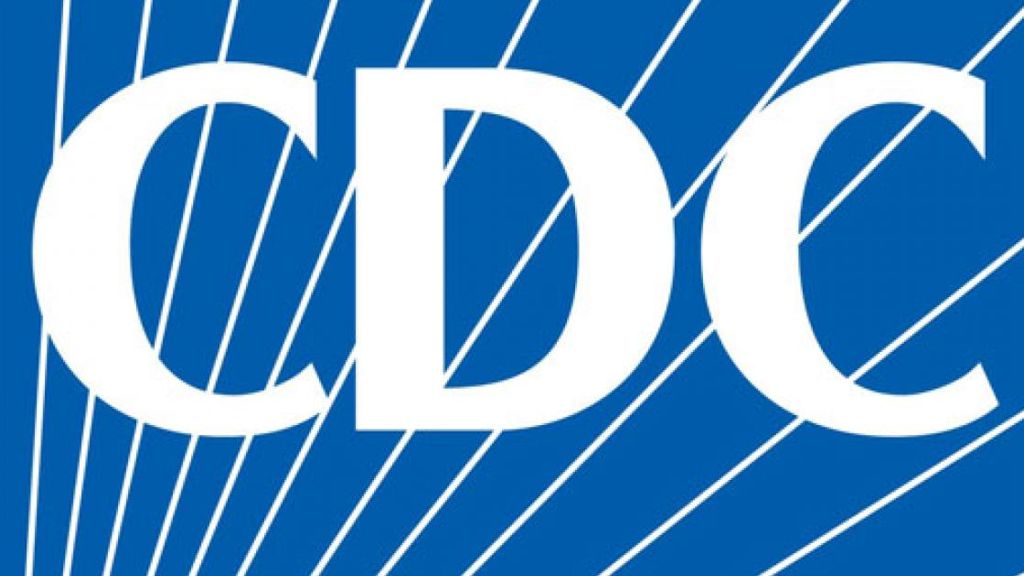Bipartisan Responsible Financial Innovation Act Addresses CFTC And SEC Jurisdiction, Stablecoin Regulation, Banking, Tax Treatment Of Digital Assets, And Interagency Coordination, Including An Advisory Committee. Lummis-Gillibrand Focuses On Flexibility, Innovation, Transparency And Consumer Protections In Order To Integrate Digital Assets Into Existing Law And Provide Certainty To The Growing Industry.
Today, U.S. Senators Kirsten Gillibrand (D-NY), member of the Senate Agriculture Committee, and Cynthia Lummis (R-WY), member of the Senate Banking Committee, introduced the Responsible Financial Innovation Act, landmark bipartisan legislation that will create a complete regulatory framework for digital assets that encourages responsible financial innovation, flexibility, transparency and robust consumer protections while integrating digital assets into existing law. To date, the Lummis-Gillibrand bill is the most substantial and comprehensive bipartisan effort to provide certainty and clarity to the growing digital asset and blockchain industries.
“The United States is the global financial leader, and to ensure the next generation of Americans enjoys greater opportunity, it is critical to integrate digital assets into existing law and to harness the efficiency and transparency of this asset class while addressing risk. My home state of Wyoming has gone to great lengths to lead the nation in digital asset regulation, and I want to bring that success to the federal level. As this industry continues to grow, it is critical that Congress carefully crafts legislation that promotes innovation while protecting the consumer against bad actors,” said Senator Lummis. “The Responsible Financial Innovation Act, a bipartisan framework that I crafted in conjunction with Senator Kirsten Gillibrand, creates regulatory clarity for agencies charged with supervising digital asset markets, provides a strong, tailored regulatory framework for stablecoins, and integrates digital assets into our existing tax and banking laws. I am grateful for Senator Gillibrand’s partnership on this legislation, and I look forward to bringing more of our colleagues into this effort.”
“Digital assets, blockchain technology and cryptocurrencies have experienced tremendous growth in the past few years and offer substantial potential benefits if harnessed correctly. It is critical that the United States play a leading role in developing policy to regulate new financial products, while also encouraging innovation and protecting consumers,” said Senator Gillibrand. “The bipartisan Responsible Financial Innovation Act is a landmark bill that will establish a regulatory framework that spurs innovation, develops clear standards, defines appropriate jurisdictional boundaries and protects consumers. Importantly, the Lummis-Gillibrand framework will provide clarity to both industry and regulators, while also maintaining the flexibility to account for the ongoing evolution of the digital assets market. I am proud to introduce this bipartisan bill with Senator Cynthia Lummis, who has been a passionate and engaged partner, and look forward to working alongside her to build support.”
Lummis and Gillibrand have worked for months to craft the bipartisan package, first announcing the effort in March 2022. Their respective committee assignments laid the groundwork for the partnership: Gillibrand serves on the Agriculture Committee, which has oversight over the Commodity Futures Trading Commission (CFTC), which regulates commodities markets. Lummis serves on the Banking Committee, which has oversight over the U.S. Securities and Exchange Commission (SEC), which regulates securities.
The full text of the bill is available here, in addition to a section-by-section overview. Read the senators’ joint Medium post about their bill here.
The Responsible Financial Innovation Act, also known as Lummis-Gillibrand, contains the following provisions:
Creates a clear standard for determining which digital assets are commodities and what types are securities, providing clarity and structure for businesses and regulators. The bill makes a clear distinction between digital assets that are securities and commodities by looking at the purpose of the asset and the rights or powers it conveys the consumer, giving digital asset companies the ability to determine what their regulatory obligations will be and giving regulators the clarity they need to enforce existing securities and commodities trading laws.
Creates clear definitions. There is no common set of definitions for digital assets today. Lummis-Gillibrand creates definitions that will enable discussions about digital asset regulation to take place in a consistent way, and for all Americans to know the laws that affect them.
Assigns regulatory authority over digital asset spot markets to the CFTC. Understanding that most digital assets are much more similar to commodities than securities, the bill gives the CFTC clear authority over applicable digital asset spot markets, which aligns well with their current purview over other commodity markets. Digital assets that meet the definition of a commodity, such as bitcoin and ether, which comprise more than half of digital asset market capitalization, will be regulated by the CFTC.
Defines and creates requirements for stablecoinsthat will protect consumers and markets and promote faster payments. Payment stablecoins are increasing in use and adoption and when structured appropriately, could provide consumers with faster, more secure means of payments. Lummis-Gillibrand establishes 100% reserve, asset type and detailed disclosure requirements for all payment stablecoin issuers. This guarantees that a payment stablecoin holder can always redeem the stablecoin in exchange for the equivalent dollar value, which maintains its value and protects consumers from many of the potential risks associated with stablecoins. The bill also sets forth a detailed, optional framework for all banks and credit unions to issue payment stablecoins. The bill also authorizes a special depository institution charter under both state law and the National Bank Act for payment stablecoin issuance, with tailored capital requirements and holding company supervision. The bill does not require all payment stablecoin issuers to become depository institutions.
Creates an advisory committee to develop guiding principles, empower regulatory agencies and advise lawmakers on fast-developing technology. The bill creates an advisory committee composed of a diverse set of stakeholders, including industry, advocacy groups, federal and state regulators, and subject matter experts knowledgeable in consumer protection, consumer education, financial literacy and financial inclusion. The committee is key to flexibility and for responding to rapid developments in the industry. It will continuously study the quickly changing industry and make recommendations based on new developments so that regulations remain relevant and effective.
Imposes disclosure requirements on digital asset service providers to ensure that consumers understand the product and can make informed decisions when engaging with digital assets. Consumer education must remain a priority for digital asset service providers. The Lummis-Gillibrand disclosure requirements on digital asset service providers will ensure that consumers understand the products they’re purchasing, their rights, as well the associated risks of engaging in digital assets, including source code version changes and digital asset lending.
Requires a study on digital asset energy consumption. The bill directs the Federal Energy Regulatory Commission to analyze and report on energy consumption in the digital assets industry. Virtual currency mining, like other mining, can be an energy-intensive endeavor. It is important to study this issue to determine the best ways in which we can leverage this technology to help us move closer to our common climate goals by deploying more renewable and clean energy and reducing energy waste.
Directs the CFTC and the SEC to study and report on the development of a self-regulatory organization (SRO) and develop a proposal for its creation. SROs can play a complementary role, working with regulators to allow them to be more nimble and efficient, while maintaining strong supervision. However, the composition and scope of this kind of organization must be structured carefully in order to achieve the desired results.
Directs the CFTC and SEC to consult with Treasury and the National Institute of Standards and Technology to develop comprehensive, principles-based guidance relating to cybersecurity for digital asset intermediaries. As more is learned about the ways in which countries like China and Russia are participating in cryptocurrency and other digital assets markets, we need to prioritize the development of robust cybersecurity standards. It is important that the U.S. lead this regulatory effort so that businesses and innovation remain onshore, ensuring that the U.S. will determine the cybersecurity standards that govern the industry. The bill directs the appropriate regulators to study the potential for sanctions avoidance, money laundering, and terrorist financing and to develop rules around appropriate cybersecurity standards, threat identification and mitigation, security operations, auditing and penetration testing.
Provides a regulatory sandbox for state and federal regulators to collaborate on innovative financial technologies. Innovation must be able to flourish in its early stages. Lummis-Gillibrand creates a joint structure in which federal and state regulators collaborate with financial technology companies to permit them to introduce innovative products into the market on a limited basis, allowing regulators to become more familiar with financial technology products in a controlled environment, and to participate in the consumer education and financial literacy work that is important to help them engage safely with the market.
Creates a workable structure for the taxation of digital assets. As digital assets grow in use and legitimacy, it’s important to make it easier for people to use them in their everyday lives.The bill creates a de minimis exemption so that people can make purchases with virtual currency without having to account for and report income. The bill also clarifies the tax treatments of different actors and actions in the digital asset industry, including that miners and other validators are not “brokers” for income tax purposes and that their rewards shall not be income until redeemed for cash.
Directs the Government Accountability Office (GAO) to conduct an analysis of the potential opportunities and risks associated with investing retirement savings in digital assets and to report its findings to Congress, Treasury, and the Department of Labor. Lummis-Gillibrand aims to avoid limiting consumers’ opportunities to benefit from this growing sector, while also ensuring that investments can be made safely, given that many Americans count on the benefits of retirement savings through 401k plans.
Directs the Office of Management and Budget, along with the Cybersecurity and Infrastructure Security Agency, the Director of National Intelligence, and the Defense Department, to conduct an information security study around the digital yuan, China’s central bank digital currency. Central bank digital currencies (CBDCs) are growing in prevalence, and it’s important that the U.S. understands the national security implications of the digital yuan and China’s intention to promote its adoption internationally.





